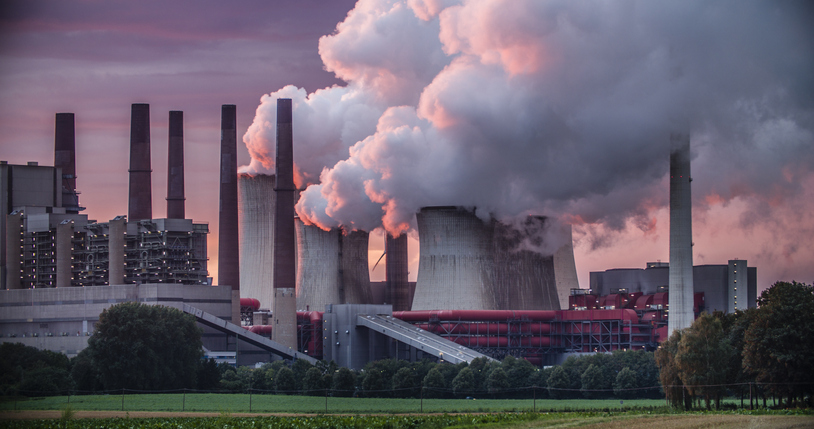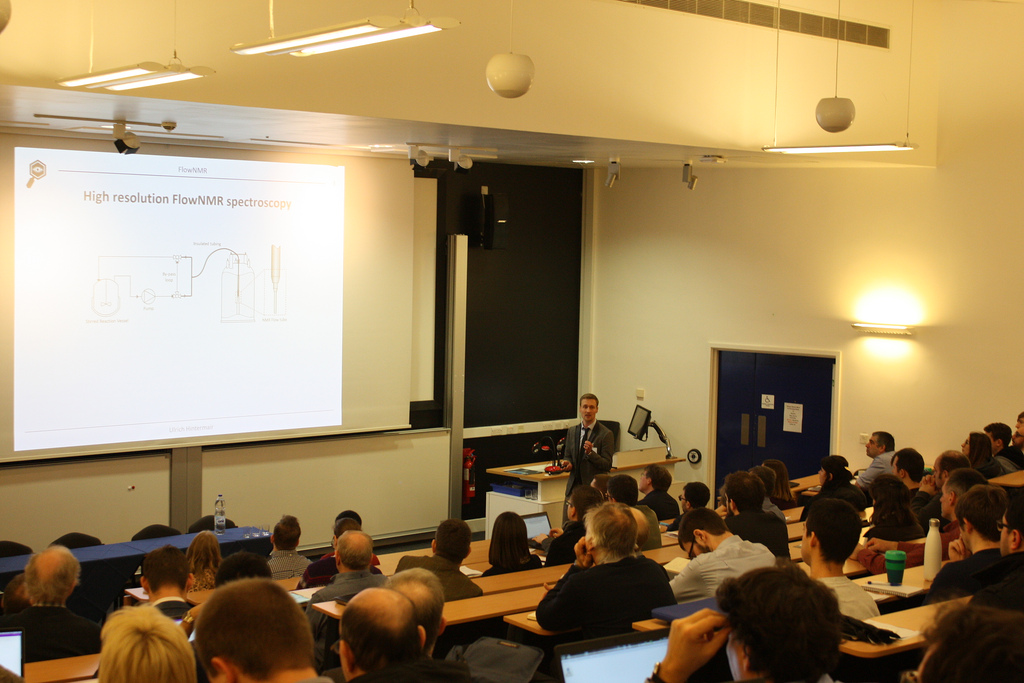
Can the UK reach net zero by 2050?
This article was originally published by SETsquared.
Last year amidst growing concerns about climate change, the UK government signed into law a ground-breaking target to become a net zero carbon emissions economy by 2050. Achieving this is no small feat. It requires all carbon emissions to be balanced by absorbing an equivalent amount from the atmosphere. Huge obstacles lay in wait and many experts argue that little progress has been achieved so far. Combine this with the economic impact of COVID-19 and concerns have begun to grow. Can the UK reach net zero by 2050?
To explore this issue, SETsquared gathered leading entrepreneurs and scientists for an in-depth online roundtable debate to explore the challenges that lay ahead, possible solutions and how confident they are about reaching net zero.
Tackling big industries
To achieve net zero, it is necessary to decarbonise a number of large-scale emitting and deeply embedded global industries including chemical, power, steel and cement. This requires monumental change and many experts argue that government intervention is the only way to bring about progress.
“A primary concern has to be addressing the impact of big-scale industries and we have to do it without compromising the people that are employed in them today,” said Professor Charlotte Williams, Professor of Inorganic Chemistry at the University of Oxford. “For change to happen industries like chemicals, steel and cement manufacturing need incentives and legislation to ensure that the right environmental and future business choices are made.”
“It also requires investment and economic remodelling of some of those industries and support for them to grow into a net zero world. We need to do it, where possible, using the manufacturing infrastructure that we built yesterday and this presents a further technological challenge. In future and in areas where we’re growing the infrastructure, we can build a new plant but until that’s possible in the UK and we’ve got a sufficiently strong economy – we need to achieve net zero using existing infrastructure.
“I’d like to see a two-pronged approach whereby we invest to allow large-scale emissions industries to implement the technologies that can change their carbon profile and follow up with the pattern of enforcing that reduction,” added Professor Williams.
Jim Cook, CEO of Isometrica, is developing a geospatial mapping approach to measuring the carbon footprint in rural businesses and communities: “I don’t have a huge amount of optimism for legislative interventions. I think every government has too many things to worry about. But I do find optimism in the most unexpected of places.
“For example, China has been able to do remarkable things. So, when it says it’ll become carbon neutral by 2060, do you know what? They might just achieve it because how else do you deploy tens of thousands of electric buses in one of your major cities overnight other than through a government simply making its mind up and doing it!
“I think if the UK tries to get out of its COVID recession through building more houses and ramping up HS2 and so on…that won’t contribute to net zero at all.”
However, some of the panel attendees were more optimistic about legislative intervention.
Sandra Sassow, CEO of SEaB Power, a decentralised waste to energy conversion technology company has observed great progress being made at a local level: “I’ve seen legislative change happen to help urban environments become cleaner and greener, right down to finding ways to adapt the infrastructure. In San Francisco, everything new that’s built in the city now needs to be a closed loop from a waste perspective. That’s a huge move in the right direction. Singapore has the same requirement for all buildings, not just new builds. So, where it’s not happening at a central government level, we are seeing it at an innovative local level even without legislation, like Exeter, in the UK.
“The UK, Europe and the United States prefer to adopt solutions at the local level rather than by central government mandate. We have seen this with the COVID pandemic responses. More innovative municipalities are taking the forefront and acting as leaders to adopt a completely new distributed approach. This will help the UK meet the NET Zero targets, and in addition, that decentralised and more localised approach brings greater resilience.”
Phillipa Roberts is Co-Founder and CEO of Binit Group, which provides an on-demand waste and recycling service for businesses added: “I think there’s a lot of thinking going on in cities. I love what Paris is doing around its 16-minute city – the idea that we rebuild communities so that you should be able to access everything you need within 16 minutes on foot or by bike.”
Jim Cook is also optimistic about what can be achieved when big industry and government combine forces: “If we look at the amount of investment and the results that we’ve seen in the response to the COVID pandemic; it’s quite extraordinary what big industry and governments can do by getting behind a problem and really working to solve it fast.
“At the start of the pandemic it was thought that it would be years before a viable vaccine would be ready, and now it looks like one will make it through clinical trials within the next 6-12 months. It’s extraordinary what can be done with enough people behind it.”
In the UK, transport is the largest source of carbon dioxide emissions damaging both the environment and public health. The government has committed to banning the sale of all new petrol and diesel cars by 2035, but experts argue that a 60% reduction in car mileage would need to happen for net zero, even if all cars were low emission by 2035.
Ian Ellerington, Head of Technology Transfer at The Faraday Institution, the UK’s independent institute for electrochemical energy storage research, explains how CO2 emissions is being tackled by the automotive industry: “Electric vehicles are a huge part of the solution. They produce far less carbon than the combustion engine through its lifetime and it’s getting lower all the time as manufacturing technologies improve and progress is being made with batteries, which contributes a significant proportion of embedded carbon.
“Recycling technologies are just about coming to a point whereby it’ll be easier and cheaper to recover raw materials from vehicles than it is to go out and find new ones.
“Ultimately, at some point this decade we’re going to see electric vehicles starting to go through a full cycle in terms of manufacture and they have the potential to be substantially more sustainable with regard to greenhouse gas emissions and raw materials than the existing industry,” explained Ian Ellerington.
The built environment is responsible for around 40% of the UK’s total carbon footprint, according to the UK Green Building Council. Reducing emissions in this sector entails a review of materials used, construction methods and energy efficiency.
SEaB Power has built patented anaerobic digestive systems in shipping containers which transforms waste into energy and fertiliser: “We’re introducing our technology into the built environment,” explained Sandra Sassow. “Around 70% of the population in Europe live in an urban environment, so in order to reach net zero we need to focus on that and the built environment within it.
“What we’re doing is decentralising the way the world handles waste – bringing it back to the local level. Ideally, all the way to the building level. So, think of your buildings as spaceships that if they could be completely autonomous that would be an ideal world.”
For many of the experts on the panel, steel and cement were both industries involved in the built environment causing concern. Steel is responsible for at least 7% of global CO2 emissions releasing 12.2 tonnes of CO2 per cubic metre used, mainly due to the heating process involved. While cement is responsible for about 8% of global CO2 emissions due to its widespread use as cities rapidly develop.
Working in partnership and financial investment to initiate change
Bringing about large-scale progress to change the manufacturing processes of big industries requires huge investment in technological innovation whether that be from the companies themselves or disruptive start-ups entering the sector and offering a new solution. Universities play a key role in this process by providing the world-leading research expertise to help grow the technologies into successful commercial opportunities.
There is a raft of environmental research happening at the University of Oxford, as Professor Williams explains: “We’re looking at how we can make chemicals from unconventional starting materials; like from plants, wastes and carbon dioxide. Research is exploring how we can reduce the energy input to big-scale industrial processes like ammonia. Without ammonia, we don’t have the fertiliser industry and that has a massive knock-on effect for agriculture, which feeds our population. There’s also a whole host of research into batteries and alternative energy storage, plus generation technologies. Furthermore, significant research into how we make better use of natural catalysts to couple and create more efficient processes.
“That is just a flavour of what’s happening at Oxford. There is a very strong academic community and set of ideas across the UK and indeed internationally in many of these areas, but how do you make sure that those ideas move from early technology readiness levels that would be appropriate for university scale research into successful businesses?
“What works well in the UK is joined-up expertise and it’s important to not force competition artificially. We need to bring people together and not structure funding mechanisms so that you fragment and break communities,” added Professor Williams.
“We also need consistent investment and not a feast or famine type of approach to funding. It’s vital to get behind these areas, back them, be tough in our assessment of whether that technology has worked, set measurable objectives and manage those programmes. This will not happen without fundamental investment and that should come from government, but it should also happen from the companies that are involved in these sectors.”
There were views shared on the panel that recognised the existence of environmental funding, but it needed to be more forthcoming.
Sandra Sassow said: “If we look at the collective time that we all spend searching and applying for funding – think what could be achieved if we instead had certainty of funding and could move forward building technology. It would make a huge difference in how we get to net zero.”
Professor Matt Davidson, Director for the Centre for Sustainable and Circular Technologies added: “When it comes to government support, let’s look at COVID and the scale of the national economic response. The number of lives that’ll be affected by global warming is on a similar scale or even more, and when you compare the amount of government investment in environmental projects – it’s evident we need a lot more support.”
Start-ups in particular need more support to penetrate the market and make a difference.
“Lots of mechanical engineering start-ups fail not because they don’t have great solutions or great designers – it’s because they can’t manufacture,” said Marcel Fowler, CEO of New Motion Labs, a mechanical motion engineering company.
“I think that’s where government can help. Established businesses in the chemical industry have factories, resources and engineers but they don’t have the innovation. More needs to do be done to encourage the licensing relationships between industry and SMEs.”
Professor Williams: “To bring an experimental scientific discovery, manufacturing process or a new product in the chemicals or materials sector– you’re going need to build expensive infrastructure. So, a typical plant to make, for example, a plastic, is going to cost you more than £100m to build and it’s going to last you 20-30 years after you’ve made that investment.
“Those businesses need good interactions with universities, and there is a range of different ways companies can work very effectively with universities and these can also be underpinned by government support.”
“We need to think carefully about how we structure the economics of supporting hard technology and scalable businesses. I’m very convinced it can happen, but it can’t just be left to market forces,” argued Professor Williams.
Huge expertise is available at universities and SMEs who partner with universities can gain real progress with their R&D, but there is still the challenge of how to bring the product to market fast enough.
“Universities can help a lot with the technology to support start-ups, but there needs to be a shared urgency,” said Professor Davidson. “Start-ups have only nine months of runway to get their solution to market, otherwise it could fold. So, academic partnerships need to form and move quickly to solve critical problems that influence net zero.”
Sandra Sassow supported this: “As businesses, our attention is on runways, starting-up and scaling-up, and our profitability and our need to meet our commitments. We’re trying to deliver products to market, and we need as much help as possible at the lowest possible cost, in the fastest possible way.
“I feel there’s a room for an ‘adopt a start-up’ or ‘adopt a scale-up’ at universities, so let’s say Oxford or Bath were to take on a group of start-ups in a particular sector and say, ‘Right, let’s see what resources we have that could help you get to the next stage’.
“We’re working with two universities in the United States at the moment. They approached us and asked: ‘What’s your problem? What do you need?’ and they then found us the resource. We had a group of executive MBA students from a large corporate with 15-20 years’ experience working on our market entry plan to the US. I can’t afford that resource in-house. This same partnership approach exists in UK universities but it’s more complex with a rigid format.”
Phillipa Roberts said: “We do try and get involved in academic programmes and I get frustrated at the speed. We provide feedstocks into research programmes. We talk to universities about doing this and they say ‘Great! Let’s get a project going. This is going to be fast-moving,’ and I say ‘We’ll start it next week. How many… tell me the material, tell me how many tonnes you want’ and then 18 months later we might get an MOU or a contract!”
There were other suggestions on how the relationship between SMEs and the commercial sector could be improved. Professor Davidson said: “We’re working closely with SETsquared and I lead a business acceleration hub in the south west around sustainable technologies. I think we need the push of fundamental academic research being translated into commercial opportunities and the pull from industry to articulate the real-world problems to be solved. UK universities are capable of turning fundamental research into net zero opportunities, but it needs the infrastructure in place to be more responsive to industry.
“One option is to co-locate industry and academia in one place in a responsive way that can move quickly and do things rapidly to get fundamental research through to application,” added Professor Davidson.
“My vision is to replicate some of what used to exist in global corporate R&D labs where there was academic and applied technical expertise together with significant long-term investment from industry. Fundamental research at universities in its current format does not replace that. It’s not responsive enough to commercially relevant expertise.
“The expertise in those labs was at least as good as in universities and they were quick to recognise a commercial opportunity and it was imperative to act quickly otherwise someone else would.”
Phillipa Roberts commented: “The idea of the lab is fantastic. I have already mapped out and known I’ve got a need for a piece of hardware that can fit with our equipment, if we could just go somewhere and say: ‘Look, here’s the project. We know the market needs it. We have the customer base. This is tested and ready.’ Then we’re already at a different point on our journey than: ‘Hey, we’ve discovered something new and now we need to find a market need for it and how do we commercialise it?’”
Others questioned whether the R&D labs of the past would now fit today’s needs.
“I don’t think we can get back to precisely what those labs were like because the profile of companies is so different these days,” said Marcel Fowler. Over 90% of people employed in the chemical industry are employed in SMEs, they’re not employed in those big companies with the will to invest, so it requires universities, government and SMEs to invest together to replicate the important aspects of those corporate labs.
“The important aspects require the retained expertise, level of capital investment and equipment that small companies simply can’t afford. It was the ability to move quickly and recognise the commercial imperative that those labs had, and the landscape was easier to navigate and penetrate.”
Is having a circular economy the key to achieving net zero?
The term ‘circular economy’ has become synonymous with the work of The Ellen MacArthur Foundation, which is tirelessly building relationships with business, academia and policymakers to accelerate the global transition to a circular economy. According to The Ellen MacArthur Foundation, a circular economy is based on the principles of designing out waste and pollution, keeping products and materials in use, and regenerating natural systems. And, it cites one of the benefits of this new system being a 48% reduction of CO2 emissions by 2030.
“In the context of reaching net zero, a circular economy is about keeping carbon in a cycle,” explained Professor Davidson. “Rather than using fossil carbon and burning it and having CO2 accumulating in the atmosphere – which is a linear process. The policy is one of recycling carbon on a technical timescale.
“I think there needs to be an element of caution in that not everything circular is sustainable. We need to be careful about making things circular just being a dogmatic mantra. It’s important to measure how sustainable it is and assess whether it meets the triple bottom line of environmental, economic and societal sustainability.”
Phillipa Roberts said: “For me, a circular economy is about keeping resources circulating at their highest value for as long as possible. That could be carbon, it could be physical resources, but it could be labour. It could be time and it should also include money. And, if we start to think about how all those different resources circulate, we begin to think about our economy in a totally different way.
“The fundamental models that we’ve built over generations clearly don’t work because they’re not sustainable, they don’t hit the triple bottom line and they fail in a number of ways. As we start to think about how key resources circulate, we inadvertently start to build more resilience in our systems.
“COVID-19 has shown us that our drive for more complex systems with supply chains that are all over the world has made us less resilient as economies, as communities, as a society. So, for me, COVID has driven circular as an even more exciting idea about how to rethink everything,” added Phillipa Roberts.
“A move to a circular economy would mean products based more around organic materials that ultimately can return to the land so that we’re taking materials out of the technical cycle and moving it more into a biological cycle. I think fundamentally as a planet this is the only way we’ll survive.
“A circular economy is also a positive message. We’re not saying to the public: ‘Don’t fly. Don’t buy stuff. Don’t live the life that you choose to live’. Instead we’re saying: ‘Let’s redesign the system so we can all continue to live the materialistic lives that so many of us want. We’re not going to change anything by saying – don’t do it. We change the future by saying let’s do it differently. And for me, that’s the important message about a circular economy. It still offers a brighter future compared with the traditional environmental sustainability messages, which have all been very reductionist,” explained Phillipa Roberts.
Professor Williams added: “How we make things and considering all of the impacts from where those raw materials come from and how you make best use of all the energy and effort that goes into making that product in terms of efficiently recycling is important.
“Using natural products, natural resources, is a really interesting idea. It’s a really good idea and I’ve been fascinated by that possibility for the chemical industry for 20 years.
“It doesn’t necessarily mean doing it exactly the same way as the natural world does things. It doesn’t dictate that you can’t have products with equivalent or even better performance than the materials we use today.
“We need to be thinking about how nature is so clever with its materials, and we have products from nature that have lasted for many hundreds of years very efficiently, and then when we don’t need them anymore, we also have ways to recycle them. We’ll have to do that with every single product and every article of manufactured item that’s in our lives. And, if we begin to think like that and demand that people who make the products think like that, then we will achieve many of the objectives we need for net zero.”
Marcel Fowler agreed: “We need to rethink the materials that we’re using, and it doesn’t have to be natural materials. We explore the different processes which government can support. And, we don’t have to change things; we just have to think about how we solve the same problems differently and it doesn’t need to take away people’s quality of life.”
Agriculture is an industry that produces huge amounts of CO2, nearly 10% in the UK. These greenhouse gas emissions originate from livestock such as cows, agricultural soils and rice production.
“There is a great opportunity to improve the sustainability and circular nature of processes within agriculture,” added Jim Cook. “I think if we look at how carbon emissions are driven by, for example, high nitrogen fertiliser regimes for maize production; if we shift to different models of agriculture then we can reduce the requirement for external fertilisers. That doesn’t mean that everybody has to start living off a couple of cows and a few acres, it just means that we don’t till the ground so much to destroy any sequestered carbon, we improve the fertility of our soils and we reduce the need for inputs in the first place. There’s a huge amount that can be done and I think measuring what we do right now and tracking progress is really important.”
Can the UK reach net zero by 2050?
“I’m very confident we are capable of reaching net zero by 2050,” said Professor Davidson. “I think we underpredict what technologies in the future will achieve. Take advances like wind and solar, which are more affordable than people thought would be even five years ago. This opens up opportunities for other technologies, but only if we do all the things we’re saying we’re going to do, which is invest heavily in them and work together.”
“I’m going to say I’m 100% confident,” said Phillipa Roberts. “I think COVID is an amazing opportunity because lots of people are rethinking how they live their lives, the quality of their lives and the things that matter. Let’s grab this chance and challenge the way that we’re doing things at the moment. The money, the will, the headspace is there for people to think differently and let’s turn it into something positive.”
This view was shared by Sandra Sassow: “I think COVID has initiated change. I would like to make sure we don’t go back to that full-on need to travel and remain with online means of communication. In normal circumstances, we would have all travelled to a venue for this debate and contributed to CO2 emissions. I’d like to see people staying with what is the new normal.”
“I’m about 70% confident that we’ll be net zero by 2050,” stated Marcel Fowler. “I think we need an education programme for schools and teach our kids about the issues and get them galvanised because they’ll be inspired and share their ideas with their parents. And, that’s how we’ll get real change from people’s lifestyles.”
But there was some pessimism, particularly when considering the impact of agriculture, as Jim Cook explained: “I don’t wake up every morning and feel depressed over how little progress we’re making because I think that would be a route to doom and disaster. But the atmosphere has warmed, and CO2 emissions have increased over the past 100 years so really big changes are required to achieve net zero. So, am I optimistic about meeting emissions targets? Not really.”
Ian Ellerington added: “I’m confident but then the issue that hardly anyone ever talks about is agriculture. If you look at the charter where the greenhouse gases come from, agriculture used to be a small proportion and it’s been stubbornly difficult to decarbonise and it’s going to become a bigger and bigger proportion of total emissions.
“I’m a little more confident about industry. I can see advances in the pipeline for chemicals and I’ve seen proposals for cement whereby there’s the potential to decarbonise it or even make it negative carbon.”
Others supported the view that big disruptive technological advances are on the horizon which will make a huge difference, as Professor Davidson explained: “There’s the potential for the production of green hydrogen from renewable energy. There are also advances toward a distributed manufacturing system for converting waste and biomass into high-value chemicals and materials.
“I think we might be heading towards disruptive events where the barrier to entry is far lower than now. This may lead to lots of small innovative companies with distributed manufacturing doing work for local supply chains with access to generated hydrogen. Imagine having a black box that will make the amount of hydrogen you want when you want it in a sustainable efficient way. I don’t think the big chemical companies always understand this is happening. And, if they understand it, they don’t know how to respond to it, in the same way Kodak couldn’t respond to digital photography in spite of being at the forefront of its development.”
Professor Williams said: “I’m confident that the energy and transport sectors are making strong progress towards CO2 requirements – and those industries are responsible for around half of emissions.
“Agriculture and land use have a significant potential impact and it has the capability to store carbon very effectively. We also need to think carefully and invest in the technologies that can reduce emissions from heavy industry and reduce the impact of the built environment.
“My final point is important. Technology can contribute but everybody can make an impact by the way they live their lives and the choices they make. Every single person on the planet has a responsibility. It’s not just that the government needs to provide the money and academics need to provide the thinking, and businesses need to make it happen – there are actions that everyone can take in their everyday lives,” concluded Professor Williams.
IN SUMMARY
The UK’s recovery from the impact of the COVID-19 pandemic will reshape how we tackle the climate change crisis. Choices in the coming months must steer a recovery that drives vital new economic activity, accelerates our transition to net zero and strengthens our resilience to the impacts of climate change.
It is important that the government demonstrates its commitment to decarbonisation so that businesses, local authorities, investors and the general public make the appropriate investments over the next 10 years to support the UK’s transition to net zero.
Huge opportunities are there for SMEs who can contribute to the pursuit of net zero carbon emissions, especially disruptive innovative technologies that can bring about rapid change.
Support to succeed is available with SETsquared. The Scale-Up Programme is designed to provide high-growth SMEs with support around the key challenges of R&D, raising investment and accessing new talent. It includes a direct-link to leading expertise at six scale-up partner universities (Bath, Bristol, Cardiff, Exeter, Southampton and Surrey) to provide research talent and the opportunity to apply for R&D funding bids.
The SETsquared Scale-up Programme is supporting innovative UK companies to raise public and private investment in order to tackle societal challenges such as achieving net zero. Find out how it could support your business to grow and innovate.







